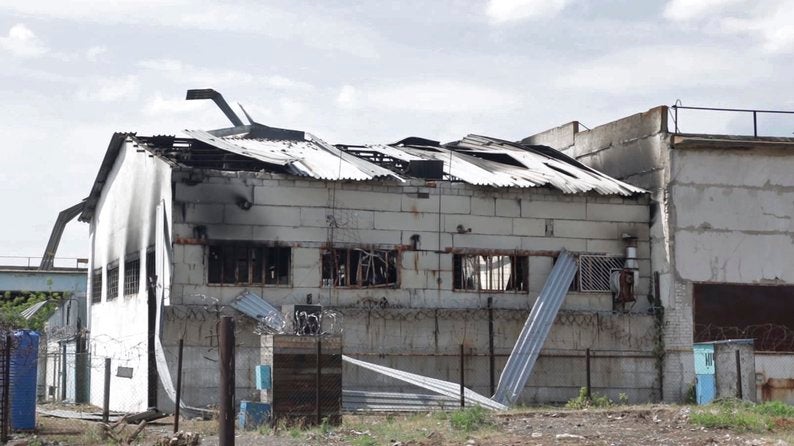White House: Russia Looking To Fabricate Evidence In POW Killings
The White House said on Thursday that it had acquired intelligence suggesting that Russia is working to fabricate evidence on the killings of Ukrainian prisoners of war in a prison run by Russian proxy forces in eastern Ukraine last week, in what Moscow alleges was a Ukrainian attack on the prison.
White House National Security Council spokesperson John Kirby said that recently downgraded classified intelligence suggested efforts by Russia to plant evidence blaming the Ukrainian military for the alleged 29 July Olenivka prison attack that killed at least 53 Ukrainian prisoners of war and injured dozens more, ahead of visits to the prison by investigators and journalists. “In fact, we’ve already seen some spurious press reports to this effect, where they have planted evidence”, said Kirby, specifically noting that there was reason to believe that Russia would blame the attack on Ukrainian HIMARS rocket artillery.
Separately, a Western government official, who briefed reporters on condition of anonymity, said explosive experts who have reviewed photos of the prison released by the Russians following the incident have determined that the destruction wasn’t likely caused by “a high-explosive strike from the outside” and that it was “much more likely to be incendiary and from inside the location.”
Ukraine’s military has denied accusations from Moscow that its American-supplied HIMARS were responsible for the attack. On Wednesday, Ukrainian military intelligence claimed that the attack was carried out by contractors of the Kremlin-linked Wagner private military company, who spread a “highly flammable substance” throughout the prison before setting it on fire. Ukraine’s Defense Intelligence accused Russian forces of attempting to destroy evidence of torture and other abuses of Ukrainian troops at the hands of Russian proxy forces of the Donetsk People’s Republic, Wagner and the Russian Federal Security Service (FSB), noting that the prisoners held there could have testified against Russia at the International Criminal Court had they not been murdered.
Among the prisoners at Olenivka were Ukrainian soldiers that had surrendered following the end of the siege of Mariupol, including members of the Ukrainian National Guard’s Azov Regiment. Azov Regiment acting commander Major Mykyta Nadtochy described the killings as a “public execution” done out of impunity by Russia, with the regiment now investigating the identities of those responsible. “We will find them wherever they are – in the occupied territories of Ukraine, in Russia or in third countries. Ukraine as a state will ensure fair punishment”, said Nadtochy.
Suspicions around the Russian account of events on July 29 at the prison were further fueled after the Twitter account of Russia’s embassy in the United Kingdom claimed that Azov soldiers deserved a “humiliating death” by hanging, shortly after Russian media began reporting of an attack at the prison. The regiment’s links to far-right Ukrainian nationalists have long been used by Moscow to excuse Russian conduct in Ukraine, as part of its narrative that its unprovoked invasion of Ukraine would “denazify” the nation.

